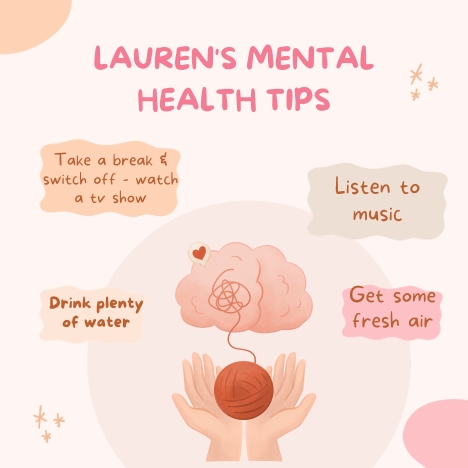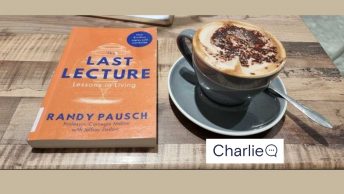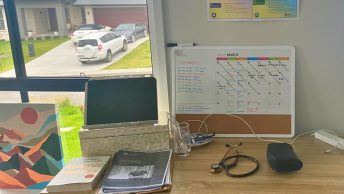Written by Lauren Signor
Are you a university student that has countless things to do and wonders how you will find the time?
With the growth of online courses, getting a degree today is much more accessible.
University and stress is a two-for-one deal!
In addition, we need to spend time by ourselves, with our family and friends but having the cost-of-living crisis on our minds constantly, means that many students are in the workforce.
So much to do but so little time… Continue reading to learn a bit about me and pick up some advice or ideas that you could trial to manage stress in your life

Although there have been some moments in my life that I felt stressed, I consider myself as quite laidback, so laidback that I did not know what advice I could offer other students about managing stress.
For me, I think I have been able to manage stress by adopting a work, life, study balance.
Achieving a work life study balance may seem like an impossible task but it can be done.
It is essential to be aware of your personal capacity and recognise that this capacity can change, and that is okay. Knowing your limits will stop you from falling over the edge.
Creating a schedule is a great visual way of understanding your limits and is a reminder tool.
On the schedule, enter everything you have happening for the week or month, including timeframes.
Highlight each entry in 4 different colours, to specify your time spent on work, life, study and domestic jobs. Take a step back and maybe ask yourself “is happiness and relaxation achievable within this schedule?”
I am on placement with Charles Sturts counselling service which has been a positive and encouraging experience.
This placement has led to a lot of learning about myself and my abilities, that contribute to maintaining my work life study balance.
The content in this blog has stemmed from the counsellors, my social work studies and my own journey of adulting.
University and employment overworks your brain, so we need to be engaged in activities that require our brains to shut off. Consider the things you can do to firstly not use your brain but more importantly recharge your brain.
I very much enjoy watching TV shows and movies to switch off (my personal favourite). Walking around the block is great for non-excessive exercise and getting fresh air.
When I walk, I will try focusing on all the sounds I can hear to limit my thoughts. Keeping up with housework never ends, blasting music makes me feel like I am not even doing chores.

Self-care is incredibly important for every single person. As I mentioned, I am currently on my social work placement which is remote/online work and it is highly recommended that students create a self-care plan to help manage stress and prevent burnout.
A self-care plan should be personal to you, include things that are achievable, of interest to you or can motivate you in some way.
I have shared my daily self-care plan below. It does not seem like much but it has proven to be successful in preventing stress and burnout during a full-time placement and being enrolled in 3 other subjects.
- Drink water.
- Take lunch break away from the computer screen.
- Engage in a form of exercise (walking, exercise bike or stretching).
- Ensure you have verbal social interactions with either family, friends or placement colleagues.
- Finish the day by journaling about tasks completed, thoughts and feelings.
The journaling aspect during my placement has surprised me greatly. As soon as my pen hits the page, there is a weight lifted off my shoulders.
Recounting my day through writing is a way of processing as well as reflecting. Journaling can also be a tool to move forward and let things go.
For example, once you finish your daily journaling, turn the page so you have a blank page ready for the next day.
This blank page signifies starting fresh, and if you flipped to the previous page you may find yourself stuck in the past.
Writing down your day and expressing your feelings will get it out of your system for you to continue towards the future.

A final note from Lauren.
To my fellow students reading this, I hope you are inspired to try out some of the activities I have mentioned or that this information can help shift your way of thinking about managing your own stress.
If you or your peers are feeling snowed under, I strongly recommend reaching out to the university’s counselling service or support line through the links below.
It is a free and confidential support system you can lean on!
Useful Links.
Professional assistance by appointment from the counselling team of social workers and psychologists – click here for more information.
Immediate relief of distress or someone to talk to, contact the Student Wellbeing Line any time – click here for more information.










